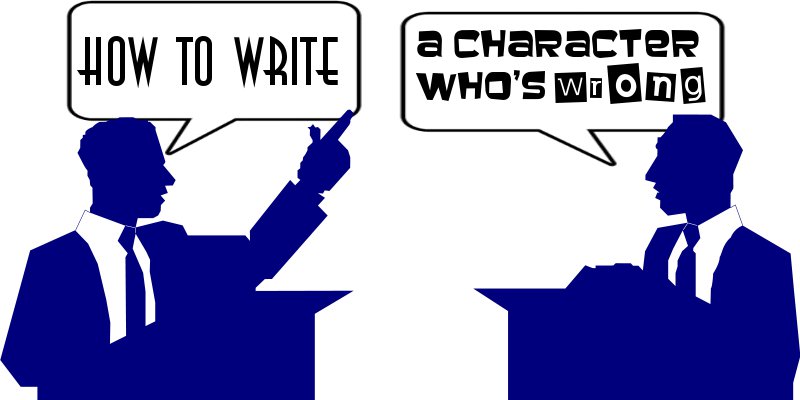
One of the challenges of writing is that you have knowledge that your characters lack. When you write dialogue, you have to narrow your focus to what each character knows, and filter that knowledge through their personality to color it with their opinion. One of the pitfalls when creating conflict in dialogue is making the character with the “wrong” viewpoint into a caricature. How do you go about making a character argue intelligently from a factually wrong position?
Incorrect Information
Conflicting sources of information can lead to differences in conclusions, even if both parties are right given their own assumptions. This sort of argument can only last until the discrepancy is identified, after which it will shift venues to a debate over whose facts are correct. Distrust of one another’s sources can keep this sort of argument going for some time, but it can be tedious if both sides are intractable.
Fabrication
One or both participants in the argument are lying. This can be fun to write, but confusing to the reader, especially if you haven’t established that characters can lie. People who know better than to click mysterious links in emails and take news articles with a grain of salt still have a tendency to believe anything placed between quotation marks by a fictional character.
Lying characters can be great fun, but you have to doubly keep track of who knows what, and what the actual truth is. Keep enough hints of the truth to let the reader guess along and you might have a masterpiece. Get your wires crossed along the way and you may have a mess beyond untangling (short of a rewrite).
Illogic
Sometimes both sides have the same facts and choose to treat them differently. This is where you can really get into some fun. The arts of rhetoric and debate are ancient and well examined. Humanity has been working on logic for so long that it’s amazing that so few people understand how to use it. Take advantage of this and understand how you can make use of logical fallacies to make reasonable-sounding arguments despite being in a lost position.
Some popular logical fallacies:
Straw Man: Fabricating an opposing position to make it appear weak, then bashing at your made-up opposition.
Ad Hominem: Attacking the character of your opponent, instead of his argument.
Reversing Burden of Proof: Insist that the opponent disprove your assertions, rather than proving them yourself.
Anecdotal Evidence: If you don’t have data, substitute personal observation (this combines well with lying).
Appeal to Emotion: When losing an argument on facts, argue feelings instead.
I use this handy reference guide to remind myself of these and more logical tricks that debaters and politicians can play, either knowingly or unwittingly. When you listen to arguments, keep these in mind. When you hear them from one side and not the other, it’s usually a good clue as to who is in the right. Make use of the same tricks to make your written arguments lively.

0 Comments